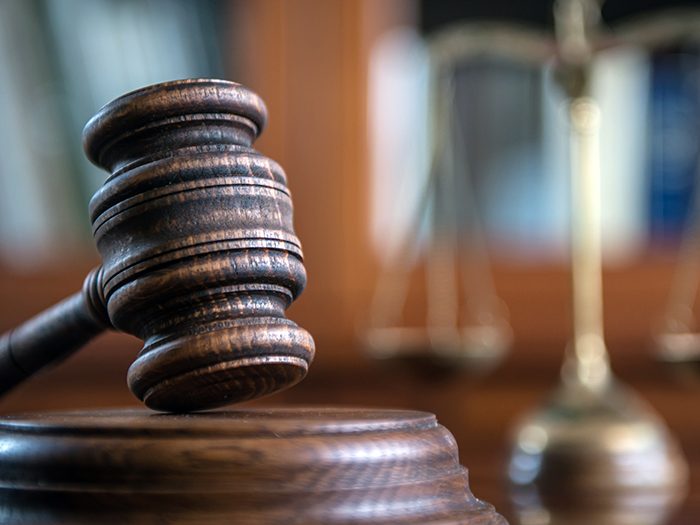Legal Roundup: New Orleans Restaurant Sues Lloyds, Katy Perry Sued for Copyright

French Quarter Restaurant Sues Lloyds Over COVID-19 Business Interruption
The Case: The Oceana Grill in New Orleans’ historic French Quarter has sued Lloyd’s of London, claiming that the restaurant’s forced closure by government officials warrants business interruption coverage.
The restaurant filed suit in Orleans Parish Civil District Court and is “seeking a declaratory judgment to proactively force its insurance carrier to pay for losses from a pandemic,” according to local CBS affiliate 4WWL.
In most policies, business interruption coverage is triggered by property damage. John Houghtaling, an attorney for Oceana, told the news organization: “Because the coronavirus contaminates surfaces, it’s property damage.”
An attorney at Zelle, which has represented Lloyds in the past, said the entire case is premature because the insurer hasn’t yet had the chance to assess and adjust a claim.
Scorecard: The case is in its earliest stages.
Takeaway: Expect attorneys to get creative in their definitions of property damage as they try to get restaurants and other companies business interruption coverage.
They are likely to be met with government officials and with a general public that is sensitive to those arguments given the enormity of the pandemic’s impact on restaurant workers.
In fact, 18 members of the House of Representatives sent a letter to leaders of the American Property Casualty Insurance Association, the National Association of Mutual Insurance Companies, the Independent Insurance Agents & Brokers of America, and the Council of Insurance Agents and Brokers requesting they retroactively cover BI insurance.
Representatives from those organizations responded by saying BI was not intended to cover disease.
Katy Perry Wins Copyright Infringement Reversal
The Case: Christian rapper Flame accused Katy Perry of copyright infringement because of the similarities between his song “Joyful Noise” and her song “Dark Horse.”
The case went to trial and a jury ruled that Perry’s song included an eight-note ostinato that was stolen from Flame’s song.
Flame was awarded $2.78 million in damages by a federal jury. The case was then relegated to U.S. District Court for the Central District of California.
Scorecard: A district court judge overturned the previous verdict.
The judge wrote, according to Variety: “The signature elements of the 8-note ostinato in ‘Joyful Noise’… is not a particularly unique or rare combination” and said “a relatively common 8-note combination of unprotected elements that happens to be played in a timbre common to a particular genre of music cannot be so original as to warrant copyright protection.”
Takeaway: It opens the door for other reversals of large copyright cases that have hit the music industry recently.
Variety also reported that “the 9th Circuit Court of Appeals upheld a jury verdict finding that Led Zeppelin’s ‘Stairway to Heaven’ did not infringe on an earlier song by the band Spirit.”
The music world has been a hotbed of copyright litigation recently.
Perhaps most notable is the battle between Robin Thicke and Pharrell Williams and the estate of Marvin Gaye. In 2018 a judge ordered Thicke and Williams to pay Gaye’s estate $5 million due to the similarities between their hit song “Blurred Lines” and Gaye’s 1977 hit “Got to Give it Up.”
Estate of Penn State Professor Sues Over Asbestos Exposure
The Case: The family of a Penn State professor has sued the university, claiming that asbestos exposure led to his diagnosis of mesothelioma 12 years after his retirement.
The family of Peter Labosky, Jr. claim “that the university negligently exposed him to asbestos dust after failing to clean it up in buildings where he taught,” according to the Wall Street Journal.
Scorecard: The lawsuit was filed in 2016 and is working its way through the Pennsylvania state court system.
Takeaway: The case “appears to be the first of its kind brought against a university by a former employee, creating a new path for asbestos litigation,” according to legal experts interviewed by the Wall Street Journal. Previous litigation has largely targeted product manufacturers.
“It could open the door to similar suits in Pennsylvania, and raise awareness about potential exposures at universities in other states.” &










